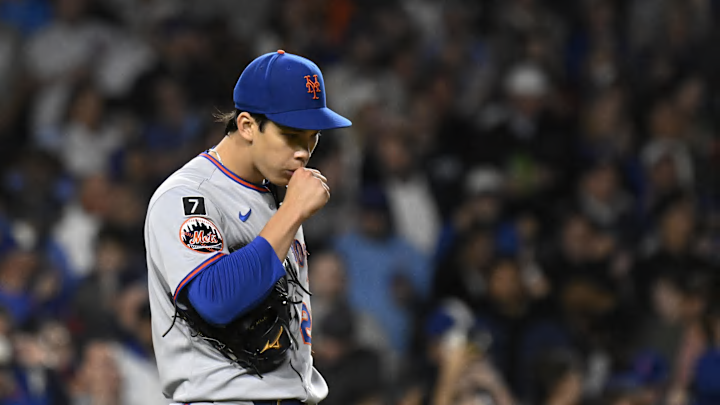The New York Mets didn’t all of a sudden collapse Wednesday night against the Chicago Cubs. Fans have noticed the cracks for months, and this loss has once again confirmed their suspicions. In a race where every game counts, losing to a team already locked into the playoffs highlights how fragile New York’s chances really are. September is supposed to separate contenders from pretenders, but the Mets keep proving which category they belong in. Chicago didn’t just win; they held up a mirror, showing a team unprepared for the pressure it promised to handle. One loss won’t end a season, but this one feels like a preview for the final four games.
Starting pitching
Since July 1, the Mets’ rotation has posted a 5.01 ERA, opponents are hitting .257 against them, and their 1.38 WHIP only begins to hint at the damage. Layer on the starters’ inability to pitch deep into games and the runs piling up in the first few innings, and the picture gets even darker. This isn’t a playoff-caliber rotation; it’s batting practice in disguise. This rotation has forced Mets fans to lean on Advil.
Outside of Nolan McLean and Brandon Sproat, this rotation offers little confidence, yet with four games left, two of those starts fall to David Peterson, Sean Manaea, or Clay Holmes—names that have struggled since July. McLean is slated for Thursday, Sproat for Friday, and the Mets are relying on the others to suddenly rise to the occasion for the final weekend. History doesn’t inspire optimism, and with starts like these, hoping for miracles feels less like a strategy and more like a desperate prayer.
Tiebreakers
The Mets might technically control their own destiny, but only just. With four games remaining, they hold a slim one-game lead over the Diamondbacks and Reds—but lose every tiebreaker scenario against both clubs, including a potential three-way tie. In other words, if the Mets slip up and even one of those two teams wins, New York is on the outside looking in. To guarantee October, the Mets must win out, leaving no room for error.
And that’s where history offers little comfort. Since June 13, this team has gone 37-53, a stretch that has exposed weaknesses in pitching, hitting, and poise alike. Winning four straight games to end the season isn’t impossible, but given how this roster has handled pressure all year, it’s a scenario more suited to a sports fiction novel than reality. For fans watching, the math is cruel and the odds even crueler.
An offense that comes and goes
Through 21 games this month, the Mets have been feast or famine at the plate. In their 13 losses, they’ve managed just 31 runs, while their eight wins have produced 67. Since late June, the pitching staff has been handing out runs like candy, which means the bats have had to carry the load. Instead, the lineup flickers on and off, leaving fans to wonder if the team will ever put together a stretch of consistent, season-saving production.
If that weren’t enough, the Mets are 0-68 when trailing after eight innings. Hoping for a late-game rally isn’t a strategy; it’s a cruel exercise in fantasy. With four games left, the offense can’t vanish at critical moments, and history suggests it will. In a season already full of missed opportunities, counting on a miracle now feels almost laughably hopeless.
